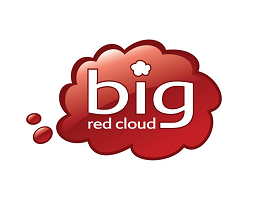Cloud based accounting software offers businesses a step up from traditional packaged software. A number of additional capabilities provide greater access and mobility for users. Overall, cloud based systems are more efficient and easier for customers to use.
But for smaller businesses it is important to weigh up your choices of online accounting software. It is likely that the system you choose will be the system you work with for some time so getting the right option to suit your business from the start is critical.
Where To Start
Before you begin you need to find out about the options that are available. A good way to go about this is to talk to other businesses that are similar to your own and ask them what system they use, how do they rate it and what elements worked best for their particular business. This will give you an idea of what is out there in terms of cloud accounting and what features might be useful to your business.
What Does It Do?
The features an accounting package provides are critical to making a decision about whether or not it is right for your business. This means you have to figure out what you need your accounting software to do but also what you don’t need it to do.
Just as it is important that a particular software does everything you need it is important not to have a lot of superfluous features you are never going to use. Ultimately, additional features are likely to cost more.
Often companies will add additional features that are only for specialist use and inflate the price accordingly. Other companies may offer a range of different packages that vary significantly in price but when you look at them in detail there is not much difference in the offerings.
Companies sometimes expect to sell one package in particular, offering the others to make that package seem like the best deal in comparison. Be sure to study what is on offer carefully before you make a decision.
How Much Does It Cost?
One of the key differences between traditional packaged software and online accounting software is the ability of online software to be offered as a service rather than a product. This is sometimes referred to as Software as a Service (SaaS).
This is very beneficial for smaller businesses and a primary reason for the popularity of cloud accounting with smaller businesses. Rather than having a large upfront expense in buying a traditional packaged piece of software, Online software can be provided for a much lower monthly cost. This is a much more manageable payment option for smaller businesses.
Of course with an ongoing payment you need to be sure you are getting value for money. It can be difficult to calculate the cost of software as a service (SaaS) against a locally installed package. A traditional packaged piece of software is likely to have recurring costs despite the upfront payment.
These may include expenses such as upgrades and patches. It may also incur many additional hidden costs such as training requirements, additional purchases for other users or machines. IT costs for hardware conflicts or failures are also a factor. The nature of online software means most of these costs would be borne by the service provider rather than the customer. Not having to worry about these unexpected costs may be worth the price alone to many small businesses.
There are some important facilities that may or may not come with accounting software as a service (SaaS) that you should factor into the pricing. Does the service include support, and if so what level of support does it provide? How many users does your fee include? Do you pay for each additional user or do you get unlimited user access? Can your accountant access your account via the cloud? Does the company offer a free trial?
Take Account Of Your Online Accounting
When you have carefully considered each of these factors you should choose the online accounting software that best suits the needs of your business. When you have selected the cloud accounting software that is right for you be sure to review the service on a regular basis to see how it compares to newer offerings available on the market.




